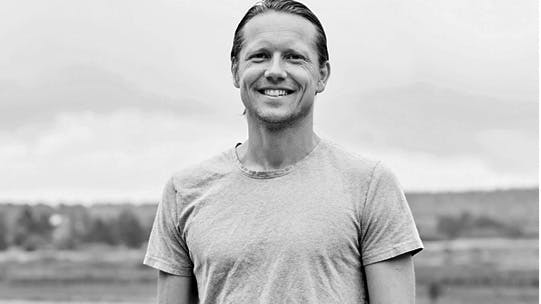"Society needs to become something it has never been before."
2023-09-22
3 quick questions to Carl Lindeborg, organizational consultant and trainer at the Executive Education School of Business and Oxford Leadership, who recently published his book "The Authentic Shift - Inner Development for a Changing World".

How can leaders and organizations increase their scope for action in a transformative world with high political risks and increased demands for transparency?
First and foremost, I think we need to realize that many organizations, and society at large, need to become something they have never been before. We are in a very special time of transformation driven by everything from geopolitical uncertainty and climate change to enormously rapid AI development. This requires a completely different type of strategy and leadership compared to taking what we already know and can do one step further. We cannot rely on existing experiences but need to discover and explore new paths and models in so many areas. This means that leadership is probably both more difficult and more important than ever before. Some of the qualities that are now critical to cultivate in oneself and one's organization are for example the ability to think systemically, open curiosity, broad empathy, adaptability, holistic orientation, and a great deal of courage.
What strategy issues are most relevant in your advice to CEOs and management teams today?
I would say that the conversation is more holistic today compared to when I started as a consultant. Back then, the focus was often narrower and based on some specific business objectives. Today, the larger purpose plays a real role, sustainable and engaged employees are much higher on the agenda, alongside the questions of what the business should achieve for its stakeholders in a complex and changing world. It has become more important to be connected to all the developments taking place both on and off the organization's existing playing field, and strategy and vision today need to be adaptive and responsive, rather than fixed points. Instead, the organization finds stability in grounded values and in the larger purpose.
What is the role of leaders' communication skills in achieving the desired results?
Effective communication is of course crucial. We can have the best strategy in the world but if we can't communicate it, it doesn't matter. And the more complex the world is around us, the more we need to become something we've never been before, the more important it is that communication consists mostly of dialog, broad inclusion, wise questioning that opens up, good listening, and joint exploration and clarification, rather than top-down presentation and transmission of information. I also think it is important that leaders today dare to say that they do not have all the answers, but they need to be discovered together over time, by more people in the organization.
Carl Lindeborg was interviewed by Johannes Hylander, Founding Partner and CDO. "3 Quick Questions..." is a series of interviews conducted by New Republic.